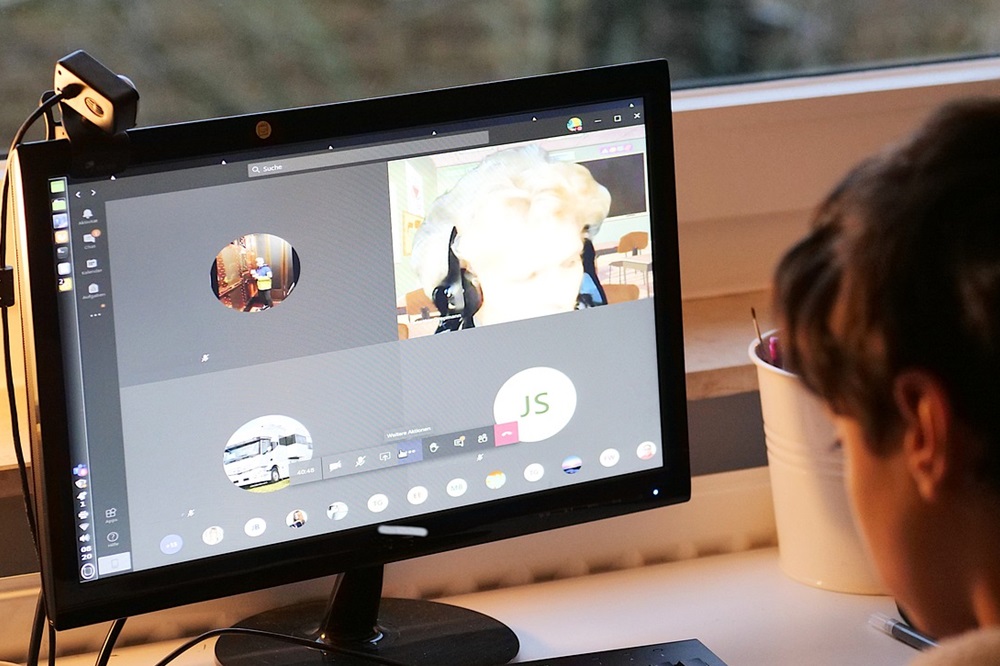Online grooming crimes in Wales more than double since offence was introduced

Online grooming crimes in Wales have more than double since the offence first came into force, according to a leading child welfare charity.
Data compiled by the NSPCC has revealed that over 550 Sexual Communication with a Child offences were recorded by police forces in Wales last year (2023/24) – more than double the amount since 2017/18 when the specific offence first came into law.
The figures provided by Dyfed Powys, Gwent, North Wales and South Wales police forces show 554 Sexual Communication with a Child offences were recorded in 2023/24 – compared to the 274 recorded in 2017/18.
Meanwhile, the number of online grooming crimes recorded by police forces across the UK has increased by 89% in six years, with more than 7,000 offences recorded.
Snapchat
The new findings reveal that Snapchat was the most popular platform used by perpetrators to target children online last year, with the messaging app present in almost half (48%) of grooming cases across the UK where the means of communication was disclosed.
Meta platforms were also popular with offenders, featuring in over a quarter of UK recorded cases where a platform was known, with WhatsApp (12%), Facebook and Messenger (10%), and Instagram (6%) all being used to abuse children.
Facebook, WhatsApp, Snapchat, Instagram and TikTok were all used in cross-platform grooming where the pattern of abuse points to a culture where the first point of contact between children and would-be offenders is on the open web.
Children are then encouraged to continue communication on private and encrypted messaging platforms where abuse can proceed undetected.
Girls are predominantly targeted by offenders for online grooming, making up 81% of total UK recorded cases where gender was known in 2023/24.
The youngest victim of online grooming in 2023/24 was a five-year-old boy.
Online Safety Act
The NSPCC has issued these findings a year on from the Online Safety Act being passed.
The charity is urging Ofcom to significantly strengthen the rules social media platforms must follow to tackle child sexual abuse on their products.
It says the regulator currently puts too much focus on acting after harm has taken place rather than being proactive to ensure the design features of social media apps are not contributing to abuse.
The NSPCC is also calling on the UK Government to strengthen legislation to ensure child sexual abuse is disrupted in private messages such as on Snapchat and WhatsApp.
Sir Peter Wanless, NSPCC Chief Executive, said: “One year since the Online Safety Act became law and we are still waiting for tech companies to make their platforms safe for children.
“We need ambitious regulation by Ofcom who must significantly strengthen their current approach to make companies address how their products are being exploited by offenders.
“It is clear that much of this abuse is taking place in private messaging which is why we also need the UK Government to strengthen the Online Safety Act to give Ofcom more legal certainty to tackle child sexual abuse on the likes of Snapchat and WhatsApp.”
Shocking
National Police Chief’s Council Lead for Child Protection and Abuse Investigations (CPAI) Becky Riggs added: “The numbers in this NSPCC data are shocking and policing joins partners in urging tech companies and Ofcom to fulfil their legal and moral obligations to keep children safe from harm within the online communities they have created.
“A year on from the Online Safety Act being passed, it is imperative that the responsibility of safeguarding children online is placed with the companies who create spaces for them, and the regulator strengthens rules that social media platforms must follow.
“Policing will not stop in its fight against those who commit these horrific crimes. We cannot do this alone, so while we continue to pursue and prosecute those who abuse and exploit children, we repeat our call for more to be done by companies in this space.”
Support our Nation today
For the price of a cup of coffee a month you can help us create an independent, not-for-profit, national news service for the people of Wales, by the people of Wales.





Doubling may reflect greater knowledge of the crime and so more reported.
Blocking the platforms if massive fines are not paid. If the owners object then advertise that the owners are happy the harm happens on their platform and up the fine.